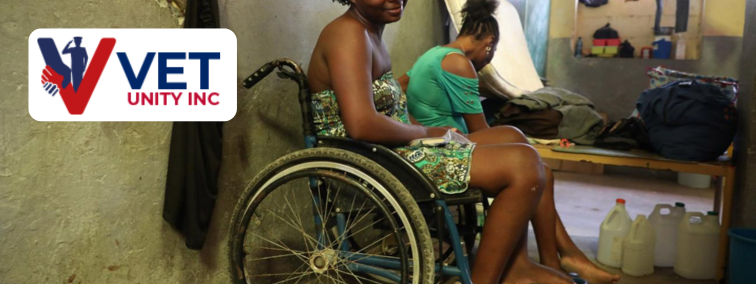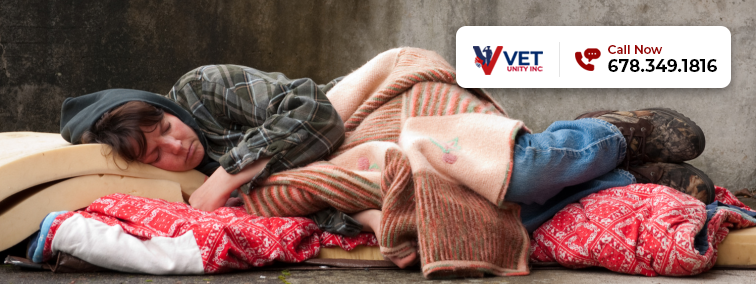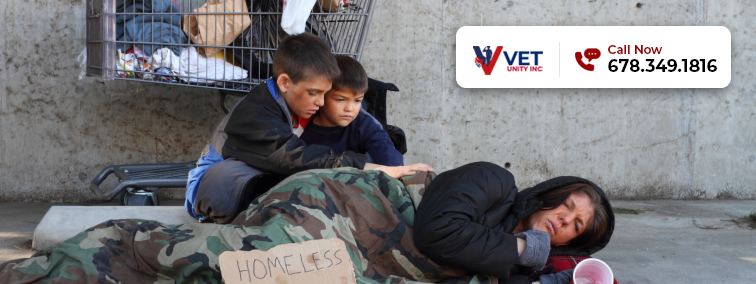Empowering Veterans: Community Initiatives to End Homelessness
Summary
Homelessness among veterans is a tough problem. But, dedicated community groups are committed to making a difference and are doing so. This blog investigates many programs. They are designed to empower veterans. The programs include counseling for mental health and job aid. They also include supportive housing and training in financial literacy. Its provision highlights the benefits of these programs. They help veterans and communities.
Table of Content
- Introduction
- Community Initiatives: Empowering Veterans
- Supportive Housing Programs
- Employment Assistance
- Mental Health Services
- Transitional Housing Programs
- Financial Literacy Workshops
- Why Community Initiatives Matter
- FAQs
- Conclusion
Veterans of our nation made valiant sacrifices while serving our country. It is sad that many people, upon coming home, are confronted with homelessness. In 2022, HUD reported that on a single night, over 37,000 veterans were homeless. It is clear from this data that there is an immediate need for efficient solutions.
Community Initiatives: Empowering Veterans
Thankfully, many community initiatives are working hard on this. They take action to end veteran homelessness. Veterans get many support networks from these projects. The networks help veterans build a road to self-sufficiency and stability. Let's have a look at some important programs:
Supportive Housing Programs:
In many cases, these programs also provide case management services. They also provide veterans with housing that is both secure and cheap. Veterans can address the root problems that may have led to their homelessness. These include mental health issues and a lack of job skills. They can do this with the help of this combination.
Employment Assistance:
Veterans have a wealth of knowledge and talents that are invaluable. Community initiatives have potential. They can connect veterans with careers that fit their credentials. Also, training programs can greatly improve the skills of veterans. It will make them more competitive in the industry.
Mental Health Services:
It may be challenging to make the adjustment from life in the military to life in civilian life. Veterans may suffer from PTSD and depression. These are two examples of mental health conditions. Community efforts connect veterans with mental health specialists. The specialists give vital therapy and support to the veterans.
Transitional Housing Programs:
The organizations help veterans bridge the gap from homelessness to permanent housing. They give them temporary housing and support services. Transitional housing can give veterans the time and resources they need. They need these to find jobs, improve their finances, and gain the skills for independent life.
Financial Literacy Workshops:
Understanding money well helps veterans. It lets them manage their finances efficiently. Workshops may educate veterans on topics. These include budgeting, saving money, and avoiding predatory lending. Veterans can achieve financial stability. They can also stop future home instability with this information.
Why Community Initiatives Matter?
Factor | Benefits | Disadvantages |
Supportive Housing | Offers secure housing, reduces stress, and promotes stability | Could potentially be in high demand and have limited availability |
Employment Assistance | Contributes to an increase in income, fosters self-sufficiency, and enhances self-esteem | Needs veterans' full attention and dedication |
Mental Health Services | Boosts mental health and reduces the risk of experiencing homelessness | May need treatment on a continuous basis |
Transitional Housing | Provides temporary stability and enables for the development of skills | Limited duration of stay |
Financial Literacy | Reduces debt and enables educated financial decision-making | Needs participating actively and gaining knowledge |
FAQs
How can I get involved in helping veterans?
Participation may be achieved in a variety of ways! You can raise awareness about veteran homelessness. You can give to a nonprofit that helps veterans. Or, you can volunteer at a local group that serves veterans.
What resources are available for veterans experiencing homelessness?
The National Coalition for Homeless Veterans is a great resource. It provides information on homeless shelters, support services, and financial aid programs. These homeless veterans support programs are specifically for veterans.
How can I advocate for veterans in my community?
Contact the political leaders in your community. Urge them to prioritize programs and services that help veterans. This is something you can do. Additionally, you may raise awareness about the problem of homeless veterans. You may also inspire others to join the fight against this issue.
Conclusion
It is a national problem. But, veteran homelessness is not an insurmountable obstacle. We can build a future where all veterans have access to secure housing, good jobs, and the help they need. We can do this by supporting community initiatives that empower veterans. Let's work together to end the issue of homelessness among veterans. Let's also ensure that our veterans have the chance to flourish.




